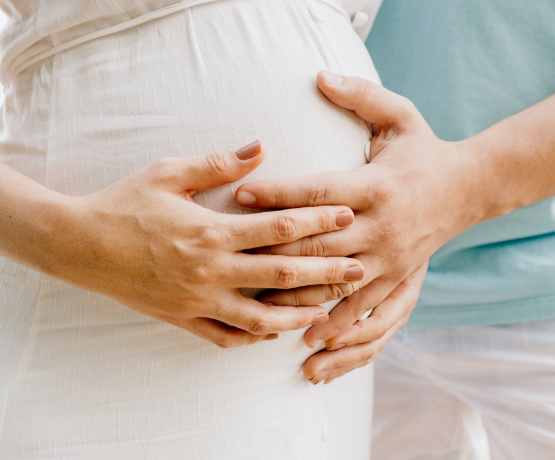Taking Control of Your Fertility with Toxin Awareness & Simple Lifestyle Changes
In our modern world, it’s no secret that we’ve exchanged convenience for health in many cases. More and more research is coming out with information about how our man-made environment is creating issues in our bodies. Fertility, of course, is one of these issues.
Our clients often feel a bit overwhelmed at the thought of talking about toxins. They soon discover how empowering it is to understand that with the right knowledge, you have the ability to control many factors and decrease your toxic burden substantially which can boost fertility.
Yes, you have control over a lot of factors that can be problematic for fertility! And that’s very good news!
Below we break down the two main categories of toxins – internal and external toxins.
Internal Toxins & Solutions
Most women understand that hormonal health is essential to fertility. And as mentioned above, your hormones will fluctuate throughout your cycle. Let’s dive into understanding what is happening – and when – throughout this full month.
The Impact of Stress
Stress has one of the biggest toxic impacts on our bodies. It’s an internal toxin that can increase our cortisol level, cause physiologic abnormalities in the systems of our body, and negatively impact reproductive hormones.
And, in a world full of stress and demands, having a stress management plan is absolutely key in preventing stress from negatively impacting your health.
Incorporating a practice into your everyday life will help the way you respond to that stress. Restorative activities such as meditation, guided imagery, breathing techniques, gratitude, journaling, and mindfulness are proven science backed ways to actually make a difference internally. By putting your body into a parasympathetic state, this will have a calming effect not only on your neurochemistry (state of mind), but also help to balance hormonal and immune function.
The brain is not static, but instead is continuously forming new connections between neurons called neuroplasticity. It can actually be trained to be stronger and more resilient to stressors around us. You can actually learn to be healthier, happier and more connected, but you must make a conscious effort to do so.
Adapting a daily restoration process into your routine will allow you to train your brain to receive the stress around you differently. The biochemical changes that occur in the body as a result of stress can be changed if the perception of stress changes. So select a stress management tool that you enjoy and can practice daily. Find what works best for you and stick with it to reduce the impact of this internal toxin on your system.
The Impact of Sleep
Having elevated stress also impacts our sleep, which can increase internal toxins. Sleep needs to be prioritized. It is absolutely critical to our general health and well being. At night, your body is hard at work “cleaning up”, rejuvenating cells, and restoring dysfunctional biochemical processes that may be occurring in your body.
The stress management techniques mentioned above contribute to better sleep, but there are other intentional practices you can do daily to support an improved quality of sleep as well – getting off your screens 1-2 hours before bedtime, keeping your room dark and cool (think 68 degrees Fahrenheit), and trying to have a similar sleep schedule or routine daily. Each of these will support your quest for better sleep and reduce your toxic burden.
The Impact of Emotions
Emotions, including anxiety and depression, negatively impact your health and fertility.
So if this is fairly common for you, you must take it seriously, not just for your own mental well-being, but for your general health. Find a therapist that you can work with and recognize that there is a lot you can do to change your baseline emotional state, Diet, exercise, mindset, and stress management techniques are just a few of the many ways to rebalance the mind. We actively work with all of our clients and patients to ensure a successful relationship with mindfulness is cultivated which, in turn, expedites the healing process and optimizes fertility in the process.
External Toxins & Solutions
External toxins are a very, very big category that impacts fertility and we really dive into this a lot with our work because it absolutely does affect fertility. So again, don’t be overwhelmed by it, but simply start with being educated on what it is you can change so you can decrease your toxin load.
The Biggest Offenders – Heavy Metals
Heavy metals include mercury, lead, and cadmium, and we know they wreak havoc on fertility.
There have been multiple studies on this topic, but there’s one study of infertile couples that stands out. They assessed whether preconception exposure to lead, mercury, and cadmium affects IVF outcomes and found that increased cadmium levels were associated with decreased egg fertilization and embryo implantation.
Mercury is a neurotoxin that’s linked to slow IQ, poor language, and motor development.
Mercury is found in some face lotions that are made outside the United States, in older thermometers, and in our water as an industrial byproduct. This is also why women are told to avoid certain fish when trying to get pregnant, such as king mackerel, shark, swordfish, marlin, orange roughy, and tuna. These should be avoided, not just in pregnant and breastfeeding women, but also in the preconception period. Since fish is an important source of protein, healthy fats, and omega 3 fatty acids, we suggest healthier fish options such as salmon and shrimp.
Cadmium, mentioned earlier, is found in rechargeable batteries, plastics, organ meats, paints, tobacco, smoke, and pesticides that are on our produce. Elevated levels can lead to emotional issues, low birth weight, and smaller head sizes in children. In men, it’s been linked to decreased sperm quality, motility, and testosterone levels. In women, it can lead to irregular cycles. It’s best to avoid these when at all possible.
Pesticides are a huge topic and something we can control. Estimates have shown that 90% of the population has detectable levels of pesticides in their blood and urine samples. We know that preconception and pregnancy pesticide exposure can impact the health of the mother and baby. This is another big category to avoid when possible.
What can you do?
Again, we know all of this information can feel overwhelming so it’s important to focus on using this to empower your choices moving forward and taking control of your health and fertility in whatever way you can.
Toxins may be a daily reality, but with a commitment to improving your health and small tweaks, you can create a better environment for you and your growing family.
- Always buy organic produce on the Dirty Dozen list. The Environmental Working Group comes out every year with a list of the top 12 foods that are most impacted by pesticides and buying these organic foods can make a big difference in decreasing your toxic burden. We also recommend buying organic berries whenever possible.
- Get rid of your plastic containers and use BPA free products to reduce exposure to endocrine disruptors. BPA is found in many plastics and can negatively impact egg quality, embryo development, and increases the rates of genetic abnormalities. Switch to stainless steel or glass for your water bottles and do not use plastics to heat up your food in the microwave. Also, if you buy canned goods, make sure the lining of the can is BPA-free….this is another place it may be hiding.
- Don’t take the cash register receipt. These little pieces of paper have BPA on the surface (that’s what makes the receipts slightly shiny) and BPA can be absorbed into your skin. When possible, leave the receipt behind.
- Choose your furniture carefully. PBDE is an endocrine disruptor found in flame retardants that can be in furniture, textiles, carpeting and electronics. There have been improvements in this area thanks to the research that has shown an impact on pregnancy loss and the effects in child development. But you’ll want to ensure you’re avoiding furniture with PBDE and minimize any children’s exposure to newly upholstered furniture.
- Get a HEPA air filter for your home. Studies have suggested a relationship between air pollution and early pregnancy loss, stillbirth, preterm delivery and low birth weight babies. You can track the air quality number for where you live and do your best to avoid being outdoors during times of poor air quality. Since this is a toxin that is hard to control, having an air purifier in your home to breathe the cleanest air possible can help.
- Focus on managing your stress, sleep, and emotions as mentioned above.
We talk about toxins and the need for detoxification at length because we want to empower you for the best fertility outcomes.
Our approach to fertility is unique in that we are 2 of less than 1000 functionally medicine trained MDs on the planet. This combination of traditional medicine and functional medicine allows us to take a much different perspective when a client comes to us for help.
Education and empowerment in regards to detoxification is a big piece of this puzzle. Our work is to support you in finding the best path forward to improve your fertility outcomes.
Often, working with a professional to walk through toxin load and detoxification is the best option to create an individualized plan based on your personal lifestyle and a variety of factors.
We also offer a medical-grade detox program and we invite you to join us in our next round. Just make sure you are doing this at least 3 months before your planned conception date!








